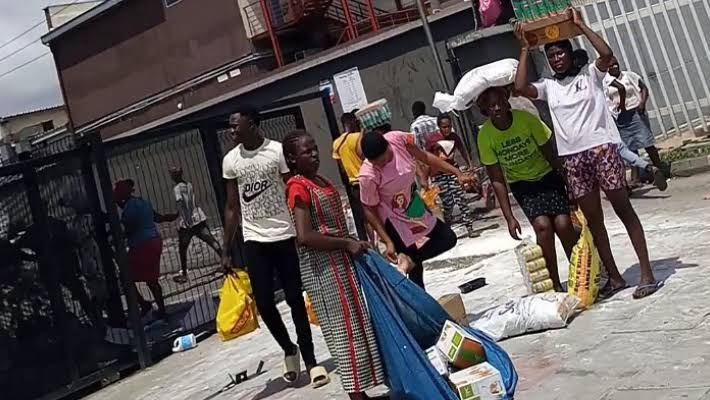#ENDSARS: organised private sector wants end to looting, seeks collaboration to end open defecation

The Organised Private Sector in Water, Sanitation and Hygiene (OPS-WASH) has called on hoodlums to halt indiscriminate looting and destruction of properties.
The National Coordinator, Dr Nicholas Igwe in a statement on Monday, said it was worrisome that the fallouts from the #EndSARS protests had seen massive looting and destruction of both private and public businesses and infrastructure.
This, he noted was threatening the peace and sovereignty of the country.
According to him, the hijacking of the protests by hoodlums has led to people defecating on the streets, as this is against the end open defecation campaign.
He said that there was the need for collaboration from all stakeholders toward ending open defecation practice in the country.
“I would like to let the youths know that we do hear you, we do see you, and we are doing everything possible to ensure that you are the centre of our activities, We need you to be part of the process, as the trajectory of Nigeria has direct implications on you and your children.
“It is for this reason that I implore you to consider the above whole-heartedly, the destruction of property and looting will only worsen the economic status of Nigeria.
“Resulting in loss of foreign investors as well as investors from the Diaspora, We need them in order to go ahead with initiatives such as ours that inspire job creation.
“It is very disheartening and painful to know that certain hoodlums chose to capitalise on the situation, resulting in violent and bloody outcomes in Edo State, Abuja and Ahmadiyya Line in Sabongari area of Kano State.
“These are but a few incidents that were reported.
“During this period, however, it is critical that we remain united and refrain from passing judgement or criticism. Instead, we must dive deeper into the root of these bold displays of anger.
“Poverty, hunger, lack of opportunity and endurance of brutality are only a few of the key reasons that such outbursts have occurred.
“That is not to say that I condone such behaviour, we must, however, ensure that we view the situation holistically, rather than analyse and harp on isolated incidents”.
He said the general understanding of the ‘bigger picture’ makes way for the entire country to find sustainable and tangible solutions, and expressed the hope that the country would not witness a repeat of a similar situation dressed in another ancillary issue.
While commending efforts of the Federal and state governments in maintaining law and order, Igwe applauded the quick actions to meet the demands of the protestors.
According to him, it is critical that Nigerians remain united and refrain from passing judgement or criticism.
He, however, said there was the need to dive deeper into the root of these bold displays of anger.
“Poverty, hunger, lack of opportunity and endurance of brutality are only a few of the key reasons that such outbursts have occurred.”
The national coordinator said every sector and industry must strive to do their part for a better Nigeria, saying that OPS-WASH, in partnership with Nigerians in Diaspora Commission, UNICEF and the Federal Ministry of Water Resources was set to inaugurate the `Project FLUSH!T’.
Igwe said ‘Project FLUSH!T’, which would be inaugurated on Nov. 19, would allow Nigerians globally to join hands and alleviate some of the WASH challenges.
This, he said, would be by donating money to fund sustainable toilets through the creation of private sector partnerships with state governments for the implementation of both water and sanitation facilities.
“This is crucial in that the collaboration of stakeholders ensure that there are high levels of mutual-accountability, As has been observed not only in the light of recent events, but political events generally, much of the concern has been around the issue of accountability.
“Moreover, we are ensuring that any such implementation or installation of water and sanitation facilities will be multi-faceted.
“What this means is that these facilities will firstly be sustainable, as previously mentioned, so as to create a sanitation economy.’’
